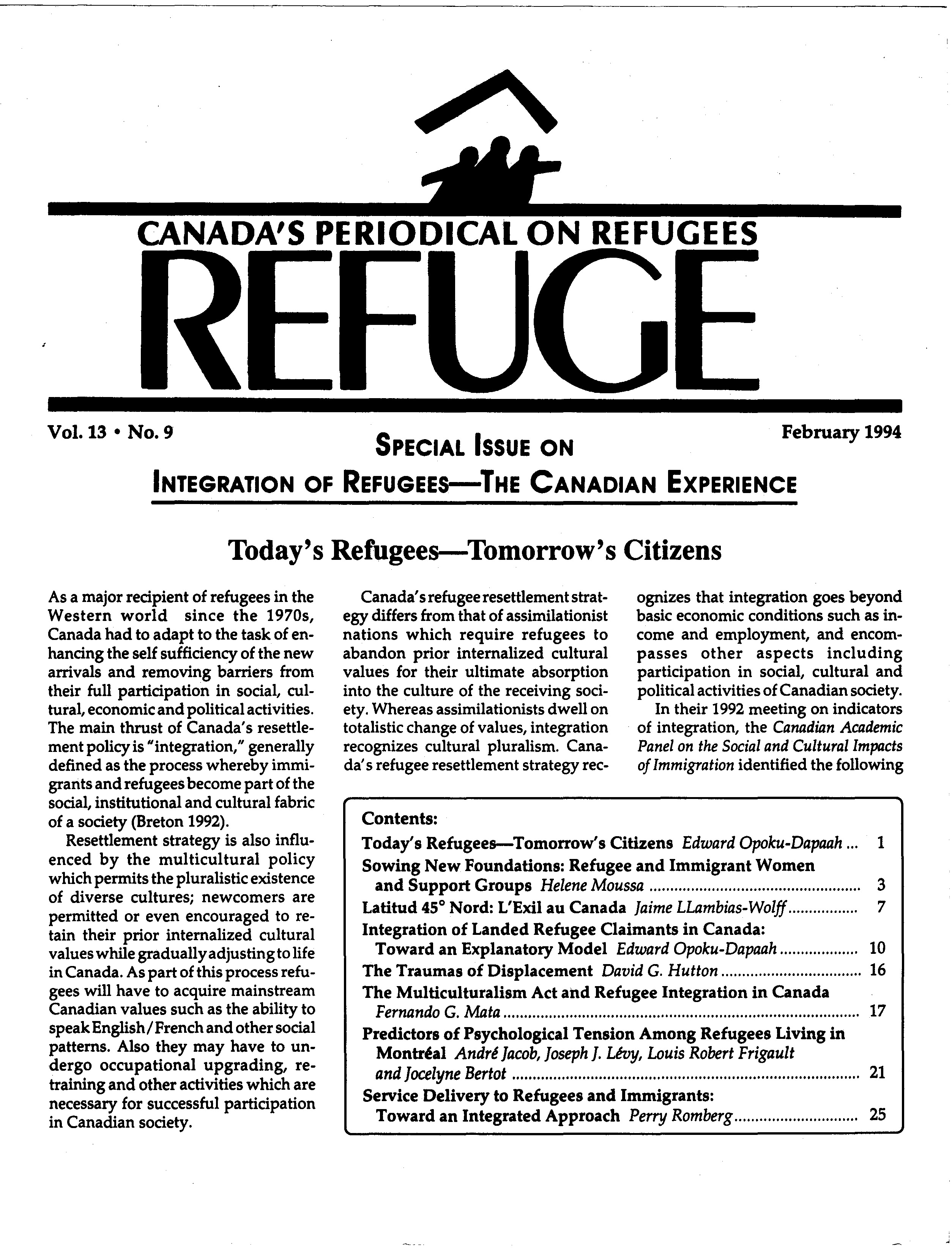Integration of Landed Refugee Claimants in Canada: Toward an Explanatory Model
DOI:
https://doi.org/10.25071/1920-7336.21780Keywords:
refugee claimants, integration, Canada, prejudice, Posttraumatic growth, status, settlement, education, rightsAbstract
This paper seeks to develop a framework for explaining the integration process of landed refugee-claimants in Canada. The main focus is on Third World origin landed claimants who arrived in Canada during the 1980s. The central argument is that the social and economic background of landed refugee-claimants, together with their past and recent experiences, tend to result in their marginalization within the Canadian socioeconomic context. Past experiences of refugee claimants include political violence, physical assault and repression which precipitated their departure abroad. Experiences in Canada, such as delays in the acquisition of legal status, restrictive access to settlement-related services, and racism create anxiety, discouragement and economic dependency. This paper contends that such past experiences can make it difficult for landed refugee-claimants to participate effectively in social and economic activities and subsequently create barriers to integration. In this paper integration is conceptualized as the ability of immigrants and refugees to settle into the existing Canadian social mosaic, benefitting fully from available opportunities, without emerging as a subclass. This definition is based on the observation that Canada's official multicultural policies promote the pluralistic coexistence of diverse social groups. It is officially assumed that relatively equal opportunities should be available to every Canadian, provided that the person is equipped with the resourcefulness, ability, and ambition to take advantage of such opportunities (Boyd 1987).Metrics
Downloads
Published
How to Cite
Issue
Section
License
Copyright (c) 1994 Edward Opoku-Dapaah

This work is licensed under a Creative Commons Attribution-NonCommercial 4.0 International License.
Refuge authors retain the copyright over their work, and license it to the general public under the Creative Commons Attribution-Non Commercial License International (CC BY-NC 4.0). This license allows for non-commercial use, reproduction and adaption of the material in any medium or format, with proper attribution. For general information on Creative Commons licences, visit the Creative Commons site. For the CC BY-NC 4.0 license, review the human readable summary.







